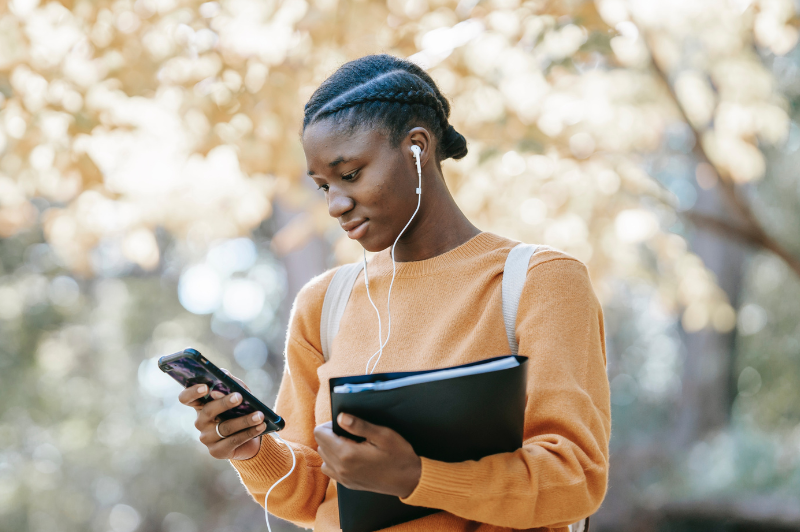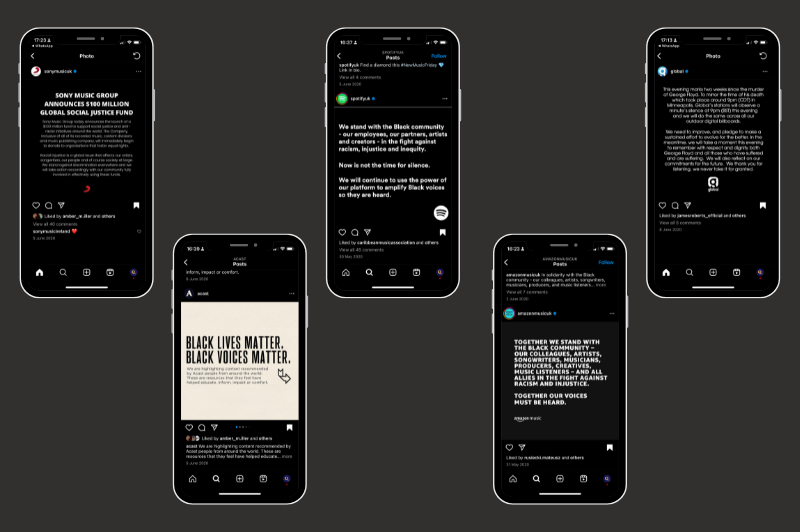Research shows that podcast listenership is increasingly diverse. Last year, Insider Intelligence reported that podcast listener diversity nearly matches the diversity of the US population. But while audiences are diverse, some communities are underserved.
According to a report by Edison Research and Sounds Profitable, half of all podcast hosts in the US are white. Furthermore, a 2020 study from Spotify Sound Up found that Black, Asian and Minority Ethic women or non-binary people host less than 5% of the UK’s top 100 podcasts. Pretty bleak.
As we continuously witness the lack of diversity in audio and how minority audiences are often overlooked, we want to highlight the importance of reaching and engaging with diverse listeners. So, in this article, we’re sharing our thoughts on reaching diverse audiences through podcasting.
Reaching and engaging a diverse audience through audio
Commit to inclusivity
First and foremost, to reach diverse audiences, you must genuinely commit to inclusivity. Without doing so, you could unknowingly be excluding listeners. From ensuring your content is accessible to using inclusive language and imagery, you can make plenty of minor adjustments that have a significant impact.
Understand your target audience
It’s essential that you clearly define and understand the audience you want to target. It’s useless to claim you want to reach ‘diverse’ listeners as a box-ticking exercise. So, think about who you want to reach and why. It’s essential to be specific to take the necessary steps to speak directly to that audience.
Commission diverse voices
There is a continuous gap in the market for podcasts to target more diverse audiences, which calls for more audio representation.
When events like International Women’s Day, Black History Month, and LGBTQ+ History Month roll around each year, we see brands and publications capitalise on the opportunity to portray themselves as inclusive & diverse. But how many of those are putting their money where their mouth is?
Amplifying diverse voices for one month of the year isn’t enough. To genuinely appeal to diverse listeners, the industry must support diverse creators all year round.
Make long-term investments
This leads us to our next point, long-term investments are essential. In an interview with PodPod, Shelina Janmohamed, host of The Shelina Show & advertising executive for Ogilivy, explained, “I think, unfortunately, one of the traps of diversity is that once you’ve commissioned it, a brand thinks that they’ve been there and done that,” said Janmohamed. “But actually, it can’t be a one-off investment. It has to be something that they invest into building over time so that voice becomes embedded in the community but can also become more widely listened to.”
Exploiting creators to capitalise on a celebration or trending movement is not diversity & inclusion.
Engage with diverse creators & organisations championing diversity
As the results of the UKAN State of the Audio Industry Survey 2023 and our Open Letter to the Audio Industry show, there is still a long way to go in terms of DE&I, but we can all commit to learning, doing better and turning promises into meaningful action.
So whether you’re an audio creator, commissioner, producer, distributor or brand trying to reach new audiences through podcasting, this point applies to everyone. Take the time to build meaningful connections with diverse creators and engage with organisations that champion underrepresented voices and open the door for collaborations that align to make the audio space more inclusive.
Content is Queen is committed to diversity, equity & inclusion in audio and will continue to fight for this through our work and as the new co-stewards of Phase Two of the Equality In Audio Pact with UKAN. Help us amplify these efforts by signing the pact if you’re a decision-maker or following and sharing our messages on LinkedIn, Twitter and Instagram.


